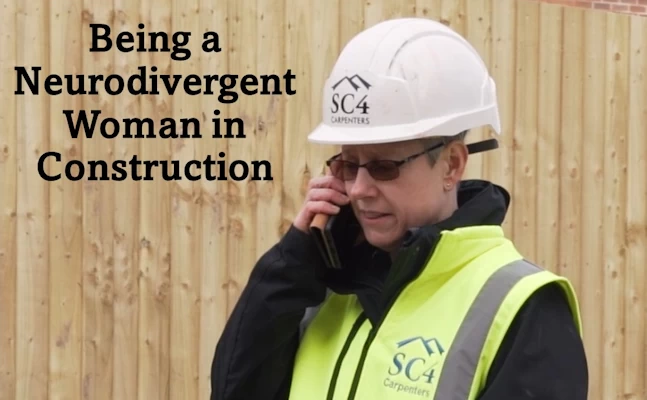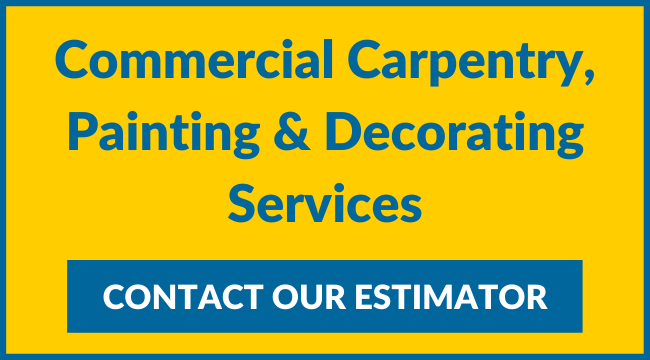
Being a Neurodivergent Woman in Construction
Katy Hall is a neurodivergent (ND) woman who has been working in technology & construction since the 1980s. In this article she shares how being neurodivergent affects her and the benefits she believes she brings to her role as an SC4 Director.
The honest posts of others have helped me understand my neurodivergence. Knowing that I am not alone means a lot. So I am sharing how neurodiversity affects me.
I strongly believe that construction offers multiple career opportunities for neurodiverse people. Recent surveys have found that more people in Construction are neurodivergent than in other non-STEM industries, so providing support & celebrating the benefits of a neurodiverse workforce is essential to enable the industry to grow & thrive.
I am lucky to have built a career for myself when so many neurodiverse people struggle with work. My solution was to create a construction company where my specific skill-set has been an asset, and flexible working means most people are not aware of my disabilities.
I believe strongly in equity, diversity and inclusion, and my aim is to ensure that neurodiverse people working in and with our company are nurtured, valued and supported.
I hope that as society becomes more aware and supportive of conditions such as ADHD, autism, dyslexia, dyspraxia, Tourettes & FND (functional neurological disorder), that more neurodiverse people will fulfill their potential, hopes & dreams.
So what are my strengths and challenges and how do they suit me for working in construction:
- I excel at logical STEM (science, technology, engineering and maths) subjects, working things out from first principles. I've forgotten most of the facts I've learnt but am great at finding information & solutions.
- I am untidy. Object impermanence means if I can't see it, it doesn't exist.
- I hold my thoughts in 3D - great for problem solving, but bad for clear communication. I multitask well and think outside the box.
- I can hyperfocus on a task to the exclusion of all else but hate to be interrupted. It is difficult to concentrate on something if it doesn't fulfil me. I am easily distracted, so need quiet to work.
- My RSD (rejection sensitivity dysphoria) means I constantly strive to please, putting the needs of others ahead of myself. I am very honest & like things to be correct.
- My neurodiversity means I find it hard to follow standard methodologies of work aimed at the neurotypical brain. However, I'm very good at finding alternative methodologies that work for me and other neurodivergent people.
- I find it difficult to listen & often type, doodle or zone out. In meetings, I interrupt. I'm not being rude - I need to vocalise my thoughts in order to process what is being said & maintain my focus.
- I struggle with memory & recognising the right time to talk. It is difficult to convert the ideas in my head into words & my tone of voice & expressions don't always match my meaning. I forget words, names, events & trains of thought. But, I am eloquent when talking about a subject I feel passionate about.
- I appear smiley & outgoing, but prefer one-to-one conversations and meetings, struggling in groups. I'm socially anxious, rarely sit, can't do small talk or too much input. Masking is exhausting.
- I don't like being inactive, so I put in effort & work hard.
- I am not a morning person. I am most productive in the afternoon and evening.
- If you have a dream or struggle, I find problems & solutions. Rather than sympathy, I empathise, giving examples of times I felt the same. This isn't "all about me" but a way of connecting, helping, caring & showing understanding.
- My comorbidities from living in a neurotypical world include anxiety, being hyper-self-critical, migraines, ME/CFS (chronic fatigue syndrome) & fibromyalgia (chronic pain).
- Last, and I hope not least, I am caring, understanding and tolerant of others' differing working, communication and learning needs and styles.
Click on the categories below to find out more about:

Connect with Us
Share this Page
More Posts
Recent Posts
- Breathe Easy, Work Safe: The RPE Every Site Worker Needs
- From Site to Strategy: Simon Mead Promoted to Associate Director at SC4
- SC4 named Cala Contractor of the Month, October 2025
- Why is Neurodiversity so important in Construction?
- Our Favourite Carpentry Project Of 2024: Cromwell Court, Old Basing
- Case Study: Timber Frame Installation in Netley Grange, Southampton